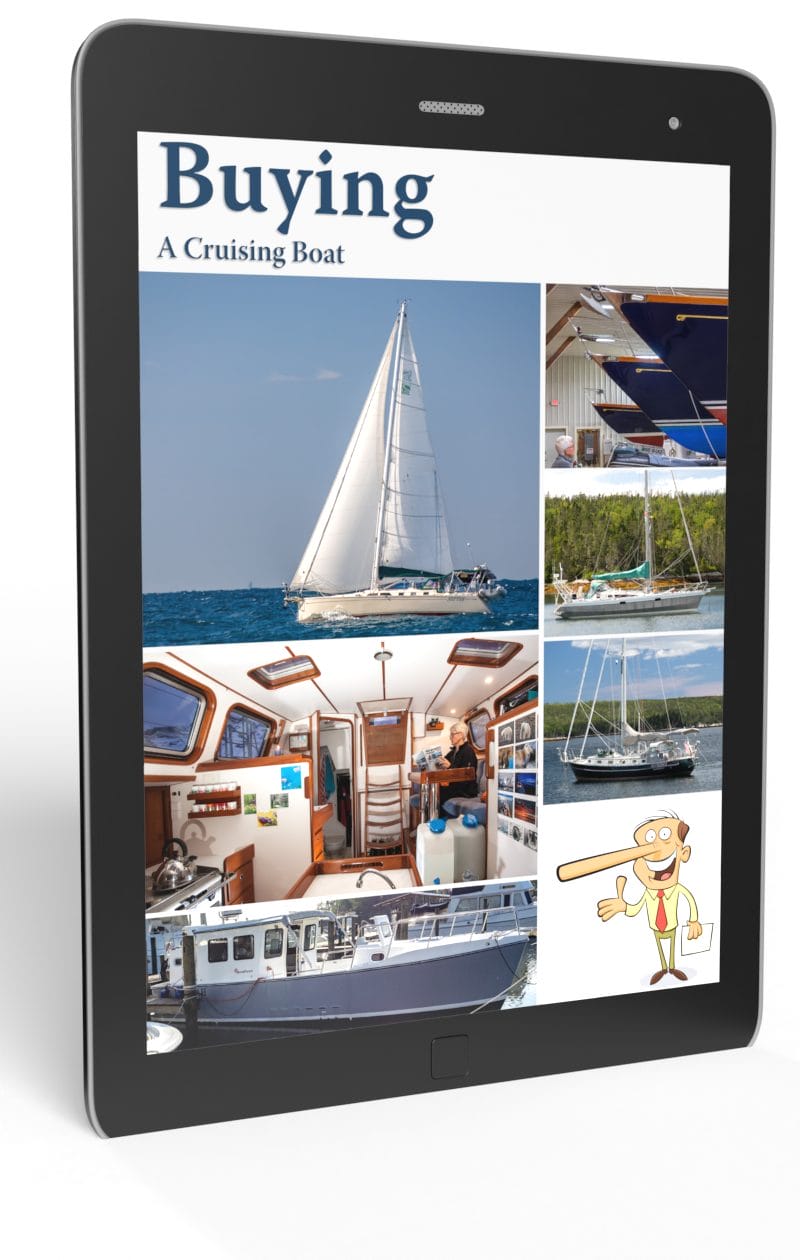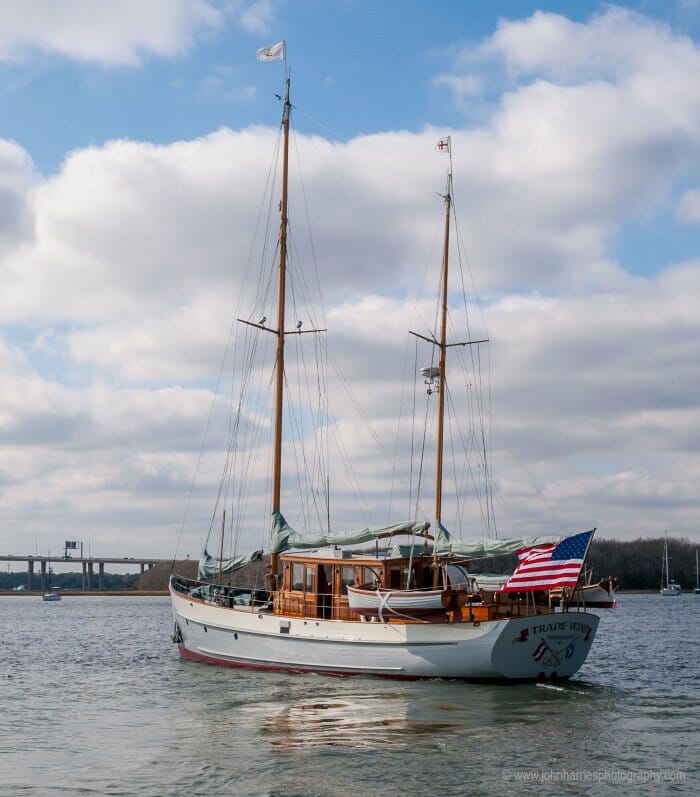At What Age should You Stop Sailing And Buy a Motorboat?
2 CommentsReading Time: 2 minutes
More Articles From Online Book: How To Buy a Cruising Boat:
- The Right Way to Buy a Boat…And The Wrong Way
- Is It a Need or a Want?
- Buying a Boat—A Different Way To Think About Price
- Buying a Cruising Boat—Five Tips for The Half-Assed Option
- Are Refits Worth It?
- Buying a Boat—Never Say Never
- Selecting The Right Hull Form
- Five Ways That Bad Boats Happen
- How Weight Affects Boat Performance and Motion Comfort
- Easily Driven Boats Are Better
- 12 Tips To Avoid Ruining Our Easily Driven Sailboat
- Learn From The Designers
- You May Need a Bigger Boat Than You Think
- When Is A Cruising Sailboat Too Big?
- Catamaran, Trimaran, or Monohull—Motion Comfort
- Catamaran, Trimaran, or Monohull—Capsize Risk
- Sail Area: Overlap, Multihulls, And Racing Rules
- 8 Tips For a Great Cruising Boat Interior Arrangement
- Offshore Sailboat Keel Types
- Cockpits—Part 1, Safe and Seamanlike
- Cockpits—Part 2, Visibility and Ergonomics
- Offshore Sailboat Winches, Selection and Positioning
- Choosing a Cruising Boat—Shelter
- Choosing A Cruising Boat—Shade and Ventilation
- Pitfalls to Avoid When Buying a New Voyaging Boat
- Cyclical Loading: Why Offshore Sailing Is So Hard On A Boat
- Cycle Loading—8 Tips for Boat and Gear Purchases
- Characteristics of Boat Building Materials
- Impact Resistance—How Hull Materials Respond to Impacts
- Impact Resistance—Two Collision Scenarios
- Hull Materials, Which Is Best?
- Six Things We Need to Check Before Survey
- Six Warnings About Buying Fibreglass Boats
- Buying a Fibreglass Boat—Hiring a Surveyor and Managing the Survey
- What We Need to Know About Moisture Meters and Wet Fibreglass Laminate
- At What Age should You Stop Sailing And Buy a Motorboat?
- A Motorsailer For Offshore Voyaging?
- The Two Biggest Lies Yacht Brokers Tell


We have known in exercise physiology for more than 50 years that, when you decrease your work load, your body will very quickly atrophy down in fitness to match that work load (within as little as two weeks). This means that, if you decrease your work load because you are getting old, you will get weaker so that the decreased work load will be just as hard and even harder to manage. If you work harder to keep a higher level of fitness than is required to achieve your desired task, the desired task will be much easier. We have also known that, when elderly people cut back on their physical work load, they atrophy down in fitness faster and age faster becoming incapacitated sooner. Therefore, the key for cruising into your later years should be to keep active and maintain a higher fitness level than is required for cruising and not cutting back on activity and fitness unless you have a significant ailment requiring you cut back on activity.
Spot on!
Some, due to jobs, family, circumstances start serious sailing at an age where lifelong sailors kick up the heels and call it a day. Obviously, they will need to stay fit into advanced age if they want to live their dreams. Funnily enough, doing so will make it more likely to stay fit into old age.
Others just stay with it. Erich Wilts comes to mind who with his wife had done some 50 years of serious sailing (German sailors will know them well, had their last yacht built in their early seventies (after the previous one got wrecked due to the Fukushima earthquake), and literally went from his last cruise to terminal care. Staying active and working hard most likely allowed him to live a great life to the very end.